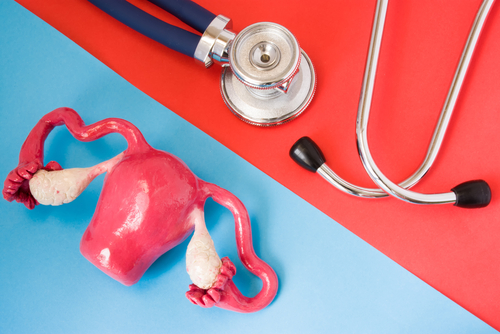Researchers at the Hudson Institute, University of Queensland and Monash IVF have received a three-year, $2.07 million grant to investigate the cause of endometriosis and the mechanisms associated with the disease.
This project will bring together three leading researchers in endometriosis: Professor Caroline Gargett, Professor Grant Montgomery and Professor Luk Rombauts.
Gargett, the award recipient from the Hudson Institute, in a press release she believes the findings will help find new targets that can be used to develop treatments for the 176 million patients worldwide who suffer from endometriosis.
Endometriosis develops when the cells of the endometrium, which constitute the inside lining of the uterus, grow elsewhere, in organs such as the ovaries, fallopian tubes, bowel, or bladder. Once established, these cells form lesions.
To date, research from Gargett’s lab has led to the identification of three types of adult stem cells that are present in the endometrium. She believes these three cell types are involved in different ways in the mechanisms that lead to endometriosis.
The funding will be used to understand how “risk gene” profiles (genes that increase the risk of developing endometriosis) are related to abnormal endometrial stem cell behaviors.
This research project will be approached in two ways. First, Montgomery, of the University of Queensland, will carry out research to help identify risk genes in endometriosis, which will be merged with the second approach of Gargett’s endometrial stem cell biology research.
“Together these approaches will allow us to identify what is happening at the genomic and cellular level. This will give us insight into how endometriosis occurs, and allow us to pinpoint the cause of this disease,” Gargett said.
“It’s easier to design a specific treatment for the disorder once we know its root cause. Therefore, we believe our approach will let us address the top two research priorities identified by women with endometriosis — the cause and a cure,” she said.
The award to Gargett and Montgomery was granted by the U.S. Department of Defense (DoD). With 15-20% of the U.S. military comprised of women, the disease affects a significant number of the force.
“The cost of endometriosis to society and the healthcare system is extremely high — with each individual woman with the disorder costing $11,300 per year. This figure represents the loss of productivity from being unable to work due to the disease, as well as the costs of healthcare,” Gargett said.
“These figures indicate that endometriosis is a significant burden for working women and a significant loss of productivity for the workplace. Funding research into endometriosis will not only greatly improve the lives of many women, it will also have huge beneficial economic outcomes for society,” she said.
Bridget Hustwaite, who is the ambassador for Endometriosis Australia, was given a diagnosis for stage four endometriosis last year after a long time of experiencing painful periods and numerous visits to the doctor.
“In Australia we need faster diagnosis, better treatments, and more education and awareness about endometriosis. I think the fact this research is being funded is a great step in the right direction,” she said.

